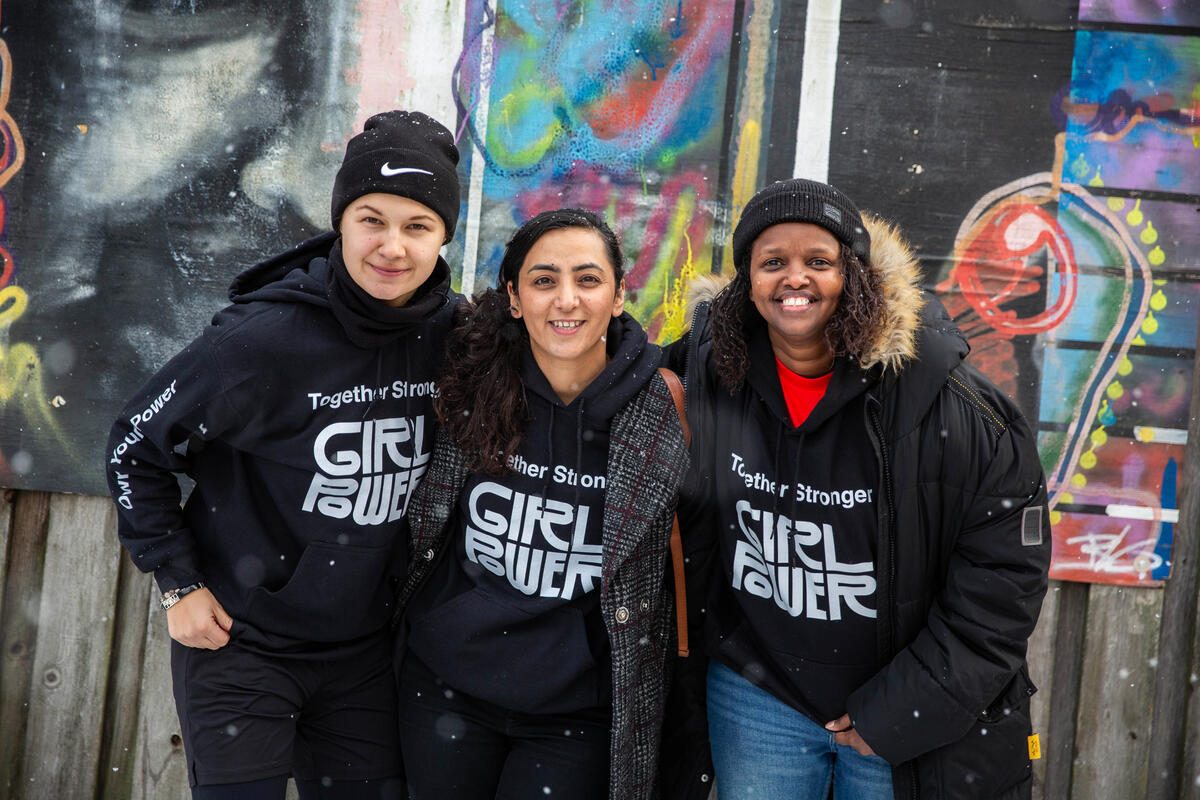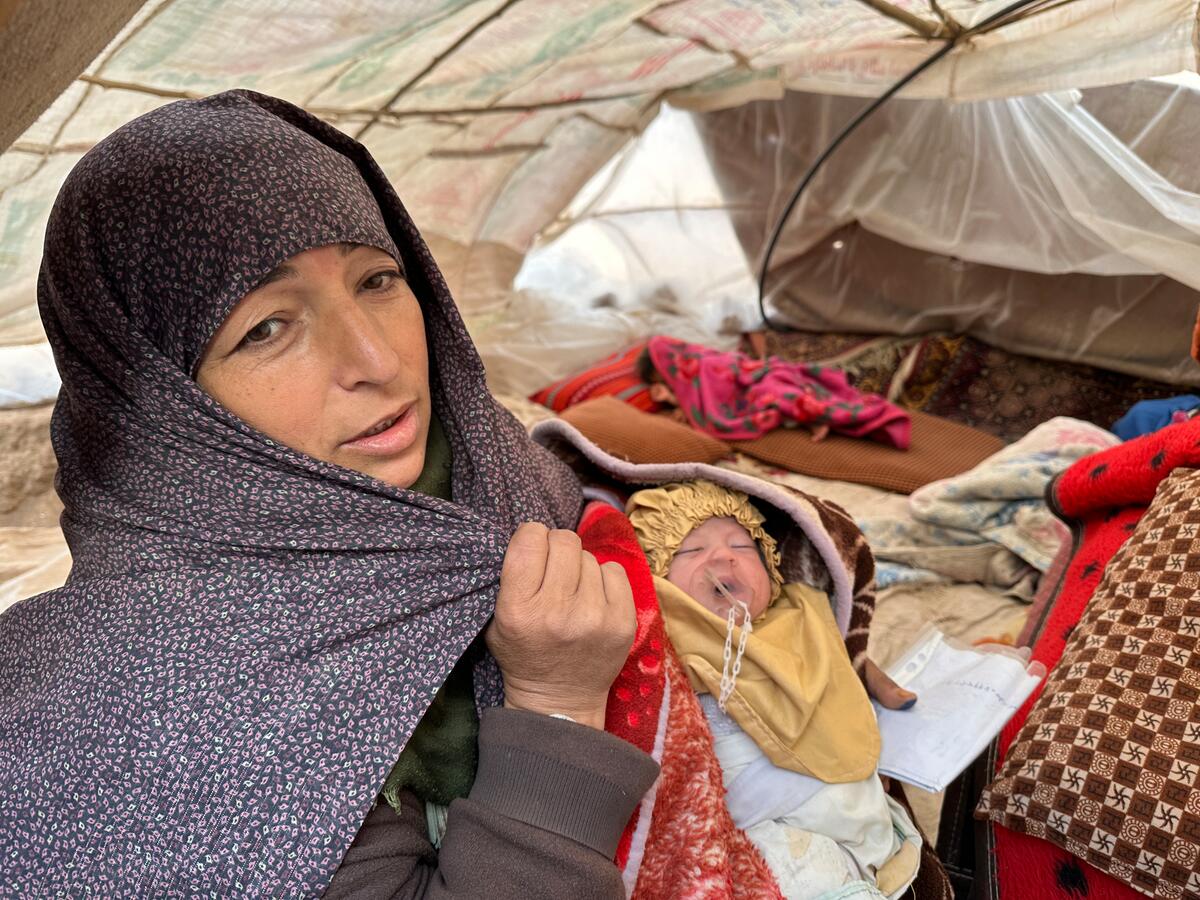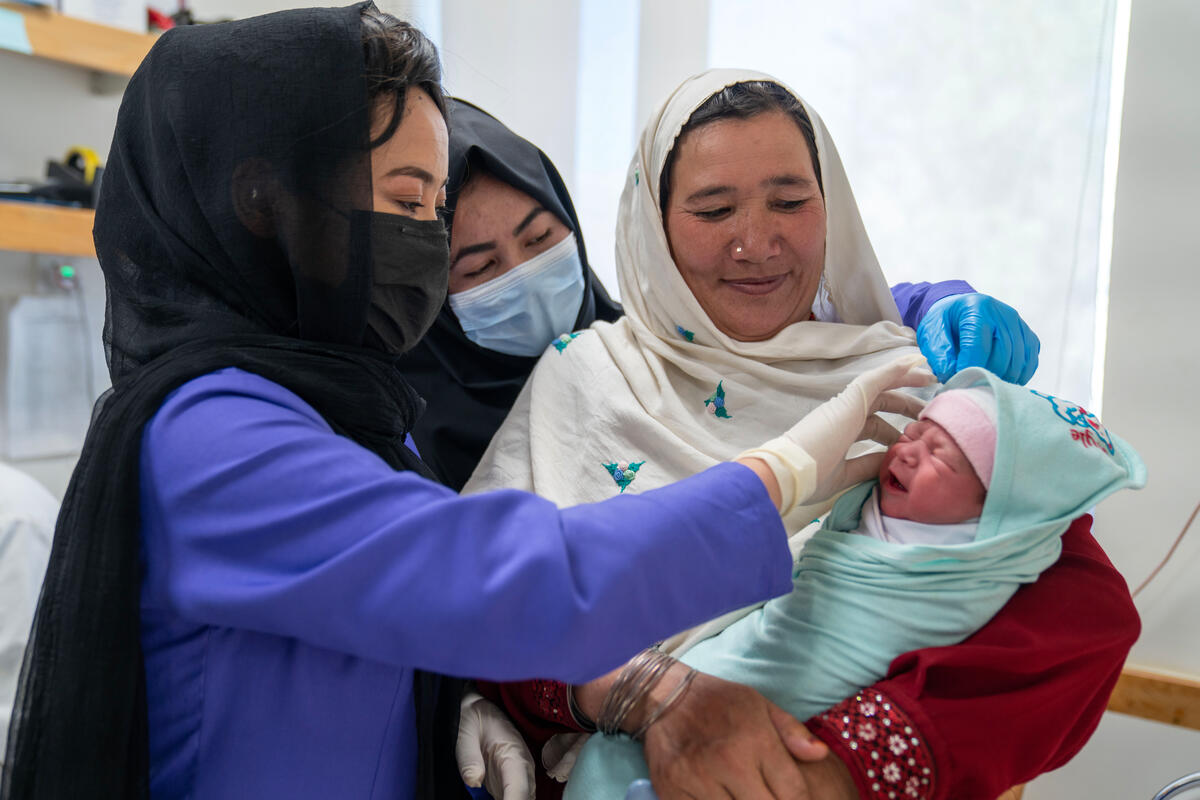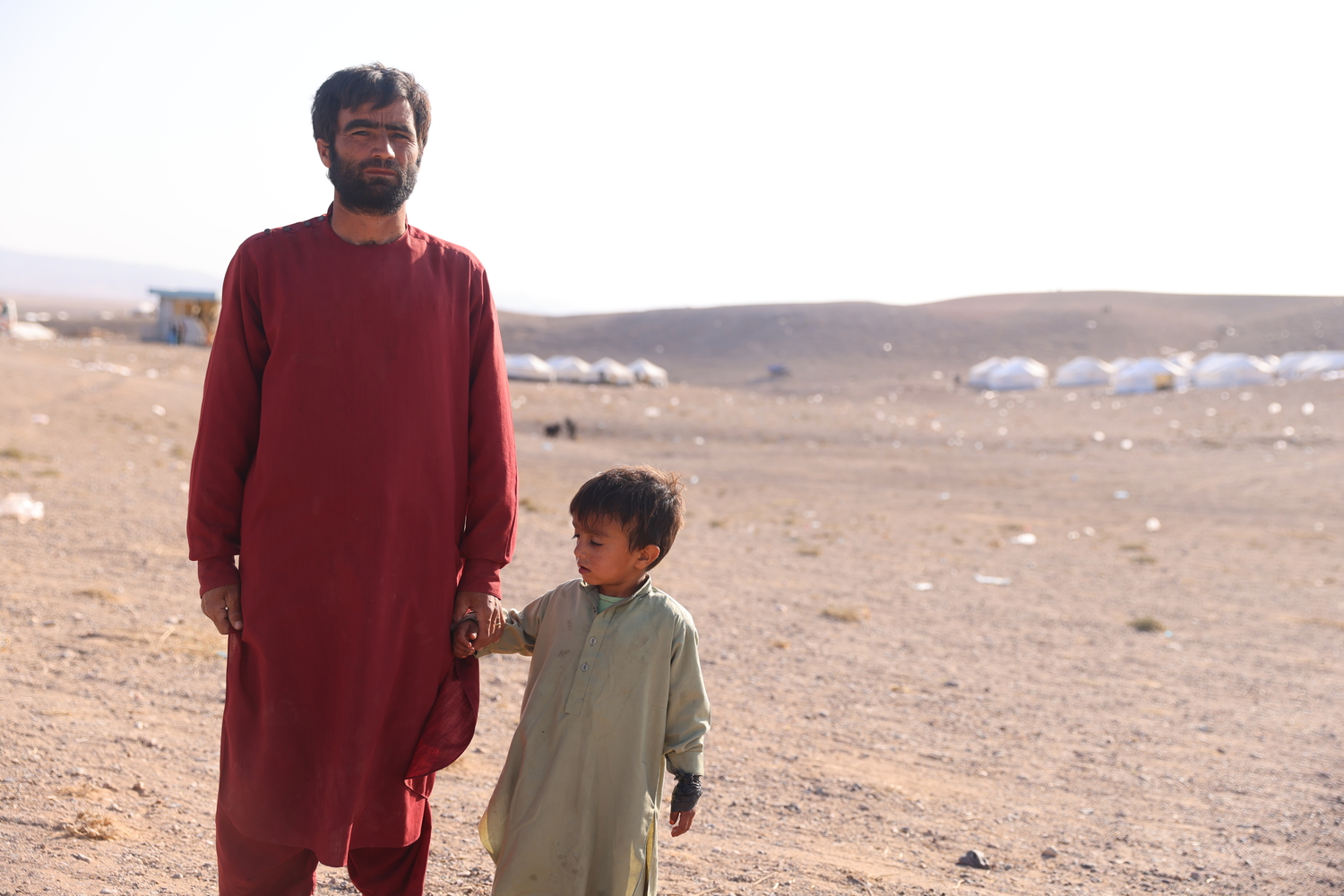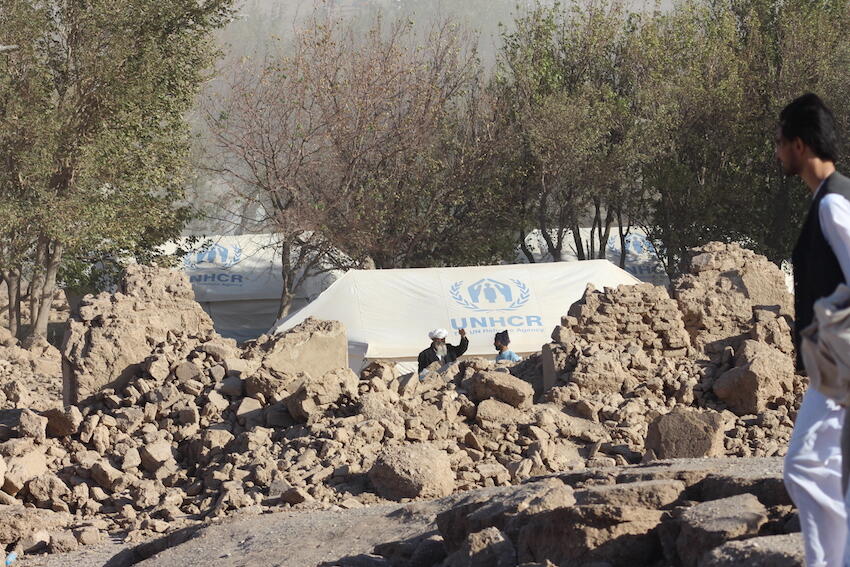Refugees craft future in Central Asia
Refugees craft future in Central Asia

DUSHANBE, Tajikistan, August 17 (UNHCR) - You know you've made it in the world when a Lonely Planet guidebook cites you as a must-see: "A small showroom with nice Afghan embroidery, gaudy Tajik clothes and carpets made on the spot by Afghan refugees."
Tucked away in an unassuming house in the Tajik capital Dushanbe, the Refugee Children and Vulnerable Citizens (RCVC) centre hardly seems like a tourist spot. The foreigners who gather here are not backpackers travelling for pleasure, but refugees who have escaped the conflict in Afghanistan.
People like Aminullo, who arrived in Tajikistan in 2003. "I'd like to return to Afghanistan if there is security," says the native of Mazar-e-Sharif in northern Afghanistan. "But if I go back now, I fear I'll be killed."
While he waits for the right time to return home, he is picking up useful skills at the RCVC centre. For the past year, he has been attending a jewellery workshop and is now teaching children. "I use the space and equipment for free. Many people come to order from the catalogue," he says of the centre.
"We give refugees material and social assistance," says Mavjuda Rakhmanova, the director of RCVC, which is partly funded by the UN refugee agency. "Some get cash allowances, others get medical care, education, or benefit from vocational training or income-generating projects. We also hold cultural and handicraft activities here."
It's mostly young women who come here to do Afghan and Tajik embroidery, knitting, and jewellery-making. What they make is marketed through partnerships, such as an arrangement with Alliance Française.
"It's a small refugee caseload, we know them all by name," says Rakhmanova. "Sometimes they come when they're lonely, just to have some company."
The centre offers free medical checks by male and female doctors, as well as regular talks on family planning and HIV/AIDS. Staff also help to identify the most vulnerable refugees for possible resettlement.
A similar initiative in the Kyrgyzstan capital, Bishkek, is the recently-opened Dusti Centre for Refugee Women. Dusti, which means friendship in the Dari language, grew from an Afghan refugee women's centre into one for refugee women of all nationalities.
"In a region where refugee rights are not always recognised and respected, it is encouraging to see that refugee women can register their own grouping and organise their activities freely," says Carlos Zaccagnini, UNHCR's representative in the Kyrgyz Republic.
Services at the UNHCR-funded Bishkek centre include emergency aid; legal assistance; vocational training workshops for small business; computer classes; income generating activities; seminars on reproductive health; family planning; and sexual and gender based violence.
In addition, the centre also addresses the needs of children by allowing them to receive supplementary education in their mother tongue and learn about the history and culture of their homeland.
"This centre should be open not only to refugee women, but also to former refugees, to asylum seekers, and to Kyrgyz women who may want to share their experiences," says Zaccagnini.
The same principle applies to the RCVC centre in Dushanbe. Gulshan is a citizen of Tajikistan, married to an Afghan refugee who teaches Dari in a local school. "I first came to the centre because I wanted to learn some skills," she says, adding that she picked up weaving from an Afghan woman who has since repatriated to Mazar-e-Sharif.
Gulshan, in turn, has been passing the skills back to refugee women, teaching them to weave carpets and bags - proof that an exchange of skills and experience can enrich both refugees and their host communities.
Tajikistan hosts about 1,000 Afghan refugees while the Kyrgyz Republic is home to some 3,500 persons of concern for UNHCR, mostly from Tajikistan, Afghanistan and Chechnya.
By Vivian Tan in Dushanbe, Tajikistan and Bishkek, Kyrgyzstan

